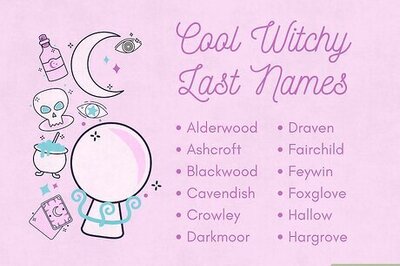
views
WELLINGTON: New Zealanders went to the polls on Saturday in a general election that could see Prime Minister Jacinda Ardern strengthen her left-of-centre hold on government or a challenge from conservatives led by Judith Collins.
Labour Party leader Ardern, 40, and National Party chief Collins, 61, are the faces of the election to form the country’s 53rd parliament, a pandemic-focused referendum on Ardern’s three-year term.
Labour led by wide margins in opinion polls before the vote.
Ardern initially appeared to be on track to be able form a Labour-only government, the first outright majority government since New Zealand adopted a proportional voting system in 1996. But more recent polls have indicated she may need the continued support of the minor Green Party.
Voting has ended, and the Electoral Commission is expected to begin releasing preliminary results shortly. A record number of voters had cast their ballots in advance.
The election was delayed by a month after new COVID-19 infections in Auckland, that led to a second lockdown in the country’s largest city.
New Zealand, with a population of 5 million, currently has no community cases of COVID-19 and is among only a few nations where people are not required to wear masks or follow social distancing.
Labour is seeking a second term on the back of Ardern’s success in containing COVID-19, while Collins argues she is best placed tackle the post-pandemic financial challenges.
The Electoral Commission said on Saturday that almost 2 million ballots had already been cast as of Friday, accounting for more than half of the roughly 3.5 million New Zealanders on the electoral rolls.
Special votes, including ballots from New Zealanders overseas and those who vote outside their home constituencies, will only be released on Nov. 6.
New Zealanders are also voting on referendums to legalise euthanasia and recreational marijuana. The latter vote could make New Zealand only the third country in the world to allow the adult use and sale cannabis nationwide, after Uruguay and Canada.
Results of the referendums be announced on Oct. 30.
New Zealand switched to a mixed member proportional system in 1996 in which a party or coalition needs 61 of Parliament’s 120 seats – usually about 48% of the vote – to form a government.
This means minor parties often play an influential role in determining which major party governs.
Disclaimer: This post has been auto-published from an agency feed without any modifications to the text and has not been reviewed by an editor
Read all the Latest News and Breaking News here


















Comments
0 comment